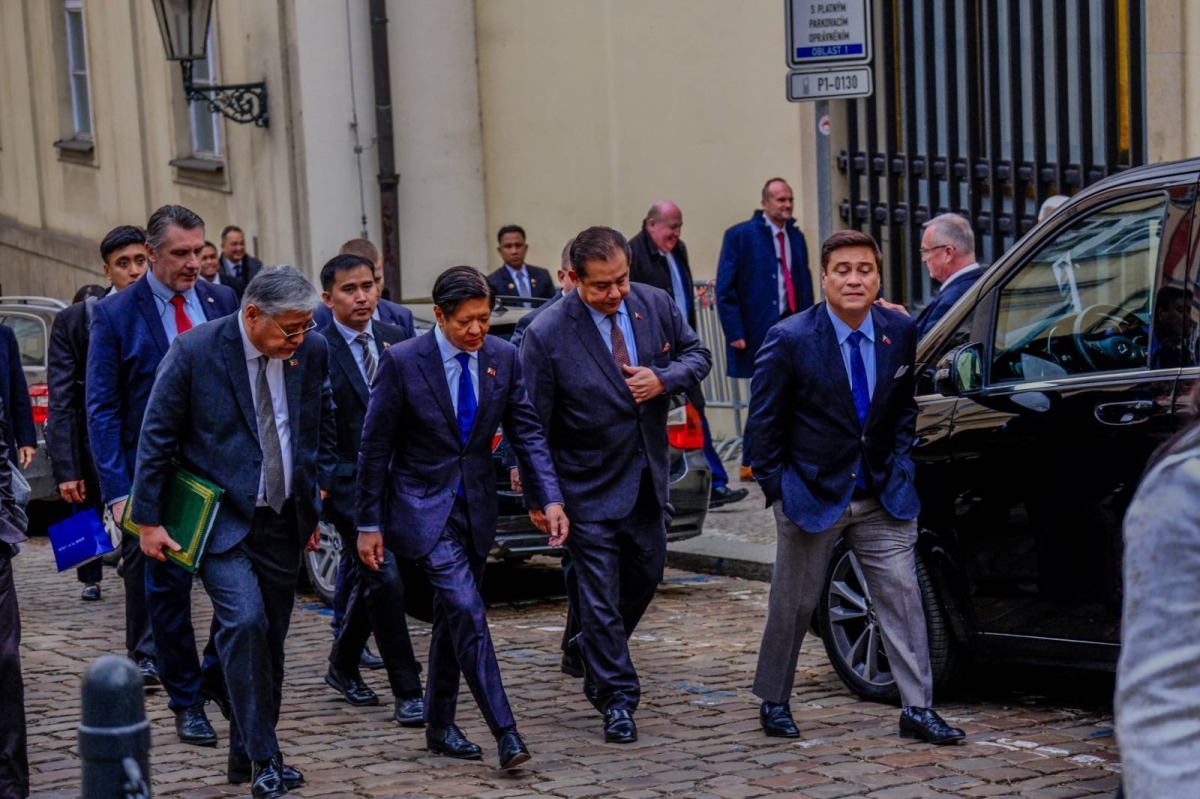Progress on Amending the Restrictive Economic Provisions of the 1987 Constitution
In a significant development, Senate President Juan Miguel “Migz” Zubiri and Speaker Ferdinand Martin Romualdez announced on Friday that the bill amending the restrictive economic provisions of the 1987 Constitution was on schedule. This amendment aims to address foreign ownership restrictions on public utilities, education, and advertising.
Zubiri expressed his confidence in the progress of the bill, stating, “Yes, we are, with Senator Juan Edgardo Angara. We have about three more hearings left, and then we’ll be taking it up in plenary and hopefully putting it to the vote.” He further emphasized the importance of garnering a three-fourth vote in favor of the measure.
Angara, the author of Resolution of Both Houses (RBH) 6, has been instrumental in pushing for the amendment in the Senate. RBH 6 represents the Senate’s version of the bill seeking to amend the economic provisions of the 1987 Constitution. The passage of this bill would pave the way for loosening foreign ownership restrictions in various sectors.
Meanwhile, the House of Representatives has also made significant progress in this regard. On Wednesday, they passed their version of the bill, known as RBH 7, on second reading. Romualdez expressed confidence in the measure, stating that it was supported by three-fourths of the House of Representatives. He also highlighted that the amendments proposed in RBH 7 closely align with the Senate resolution.
Both RBH 6 and RBH 7 reaffirm the provision that grants the power to propose amendments to Congress “upon a vote of three-fourths of all its members.” This provision ensures that any amendments to the economic provisions of the 1987 Constitution are thoroughly deliberated and supported by a significant majority.
The progress made in both the Senate and the House of Representatives has been welcomed by President Ferdinand Marcos Jr. He expressed his satisfaction with the legislative state of play, stating, “So, that is the legislative state of play as it were. The Senate is continuing with its hearings. The House has already passed on second reading. What is more important than all of that, for me, is that it is practically in the same resolution. And that, for me, is the key point in this process. We have arrived at a consensus.”
This development signifies a significant step forward in the amendment process. It highlights the commitment of the legislative bodies to address the restrictive economic provisions of the 1987 Constitution. By amending these provisions, the government aims to attract more foreign investments and promote economic growth.
However, it is important to note that the amendment process is still ongoing, and further deliberations and votes are required to finalize the amendments. The bill will need to pass through the remaining hearings in the Senate and undergo further scrutiny before it can be enacted into law.
The amendment of the restrictive economic provisions of the 1987 Constitution has far-reaching implications for various sectors, including public utilities, education, and advertising. Once these provisions are amended, it is expected that foreign investors will have increased opportunities to participate in these sectors, potentially leading to economic development and job creation.
In conclusion, the progress made in amending the restrictive economic provisions of the 1987 Constitution is a significant step forward. The commitment of both the Senate and the House of Representatives to this cause is evident, and the consensus reached on the amendments is a positive development. As the amendment process continues, it is essential to ensure that the final amendments strike a balance between attracting foreign investments and safeguarding national interests.
Source: The Manila Times








